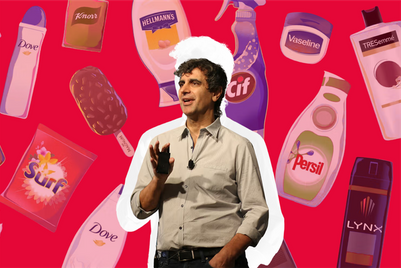
‘Our ideas and work are our livelihood and because of this we ask that you respect all case studies, concepts and creative ideas which appear in this presentation. These remain our property and copyright until an agreement is in place between both parties.’
These two sentences are the most important words in every pitch deck an agency can share.
Why? Because they place real value on the content and creative ideas that are included in a pitch. It’s a lesson learned the hard way, to ensure teams aren’t taken advantage of by the brands being pitched.
One would hope trust would be a solid foundation for a client-agency relationship. Sadly, as it turns out, legality is. While obviously not all, there are a few truly sneaky clients whose terms state they own the IP of all creative ideas that are pitched to them.
While often still a core part of a brief, pitching creative ideas is a rather traditional model. You could perhaps say outdated. While still pitching creative concepts for brand leaders we like and trust, I’m also driven to ensure we are paid—fairly—for our creative ideation. This can even happen with new-business pitches.
This is because, as an industry, we largely sell two things: Time and ideas. Why should we then give one of these away for free?
I believe that creative ideation is at its best when it’s a fee-paying service. It’s good for the client as well as the agency. By paying for creative ideas, brands can have greater input to the process. It can be a more collaborative, even enjoyable, experience on both sides as the agency and client can work strategically together—there are no shots in the dark. Having a contract in place prior to ideation also means that it is fair the client has full ownership of the work.
An important point to note: Of course, under a retained contract, creative ideas will naturally already be covered. But there is no reason that this should not apply to campaigns and projects as well, even if they are procured differently. This is because good creative ideas take a large time investment, dedication and a lot of focus. Which is a hell of a lot of work for an agency to do without a guarantee.
If brands want the best, most successful creative ideas, they need to set themselves up for it; put their money where their mouth is, and be prepared to work collaboratively with agencies. And that means paying for creative ideation, even possibly at pitch stage.
Heather Delaney is managing director and founder of Gallium Ventures.



.jpg&h=334&w=500&q=100&v=20250320&c=1)


.jpg&h=334&w=500&q=100&v=20250320&c=1)
.jpg&h=334&w=500&q=100&v=20250320&c=1)


.png&h=334&w=500&q=100&v=20250320&c=1)









.png&h=268&w=401&q=100&v=20250320&c=1)